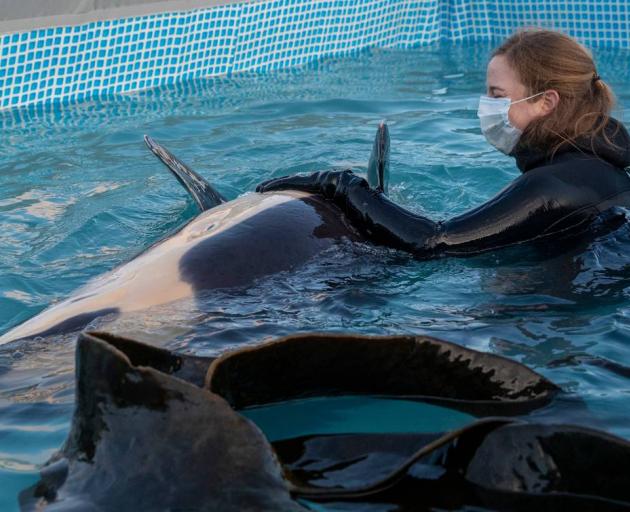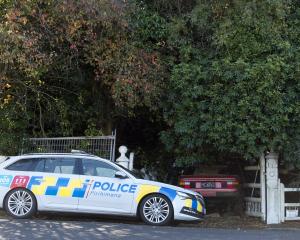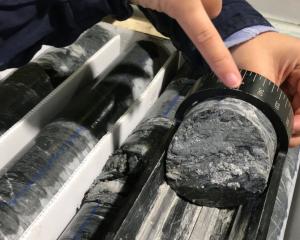
When asked whether Toa was in distress or if they were concerned for his welfare, DoC's manager of marine species Ian Angus told the AM Show that the welfare and health of the orca was "at the centre of its decision making".
They had been listening to expert commentary nationally and internationally, including comments of concern by Massey University marine biologist Karen Stockin who says an open and frank discussion about euthanasia needs to start happening.
Angus said they "have been listening" but have also been carrying out "constant" wellbeing and health assessments which note movements including how often he breathes and his swimming behaviour.
The young orca calf is currently being cared for 24/7 by DoC staff and volunteers since becoming separated from his mother at Plimmerton.
Angus said after discovering he had a bout of colic on Monday night, they had adjusted his food and he appeared to now be doing better.
"Given the stress he's been through we might get that wrong. Yes, he had colic, it gave us a fright but last night the feeding went better."
DoC had also reassessed his age - they initially believed he was 4 to 6 months old but now believed he was younger, around 2 months.
"There's been some debate about age. We know we've got a young orca."
As to whether there was a risk he could die in captivity and if euthanasia was an option, Angus said the best case scenario was that "we will have a healthy orca calf that we can relocate to the pod".
However, they still needed to find that pod.
"The orca has been in a fair bit of trauma. We also have to plan for deterioration. At the moment we have contingency plans for all scenarios. We want to be optimistic but also, we have to be realistic."
Asked whether agreed to Stockin's comments that discussions should be happening and how long he should remain in the small swimming pool, Angus said the expert advice they'd received had varied widely.
"We've talked to a lot of experts, we've had advice that 2 to 3 days say the longest [in pool], some say 30 days.
"We haven't set a time limit. We're going through a methodical assessment on a daily basis ... what we're doing is in the best interests of the orca and if it's not we would have to make some tough decisions."
Toa was too young to be set free and would no doubt die if put back in the ocean as he relied on his mother for food.
"The orca is young, it needs to be fed at the moment, ideally by his mother. It's very likely it would perish if it was set free."
He said they were constantly thinking about what was right for Toa. They currently believed Toa was fit enough to be relocated but were aware it had to be done safely but also humanely.
Yesterday, Stockin said she had concerns given how long Toa had been in captivity given he was so young - she estimated up to 3 months old.
Given his age, there were basically only two options left for him - euthanasia or putting him into a purpose-built facility of which there was none in New Zealand.












